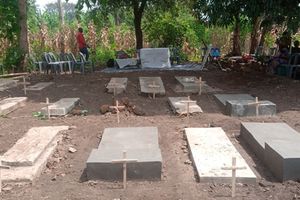
A pupil studying at home. Home schooling often happens in a controlled environment, where a parent helps a child develop particular skills. PHOTO | FILE
Parents will soon be able to decide whether to enrol their children at school or teach them at home, if a government blueprint in the works gets wings to fly.
The home schooling policy, which proponents argue will be an alternative pipeline for delivering formal education, is still at the initial stages of consideration.
Officials confirmed that the National Curriculum Development Centre (NCDC) has conducted a baseline study and is using the findings to draft customised curriculum for learners to study at home.
NCDC’s recommendation are to be transmitted for discussion and decisions by the top leadership of its parent Education ministry for the country to know which way the government will swing on home schooling.
There is no timeline on when the government will approve the education option on which the line ministry estimates 15,000 learners are enrolled, up from 7,000 during Covid-19 pandemic when home schooling gained traction.
“After the Covid-induced lockdowns, the number of home schooling learners has increased as parents realised they were spending a lot at school for services they could provide [cheaply] at home,” said Ms Joyce Nansubuga, a curriculum specialist at NCDC.
The Centre which is overseen by the Ministry of Education is a statutory entity responsible for developing education curricula for pre-primary, primary and post-primary institutions, according to information on its website.
According to Dr Denis Mugimba, the Education ministry spokesperson, the number of learners taking lessons at homes increased notably after Covid pandemic because lockdowns prompted parents to explore ways for their children to continue with education.
The traction, he noted, coincided with popularisation of the international Accelerated Christian Education (ACE) in the country.
Information on Zion International Christian School, exalts ACE curriculum as “purposefully designed around an individualised, self-paced, self-instructing and mastery-based approach”.
Under the programme, a learner’s comprehension or skill competence is delinked from age, allowing them to progress at individual pace without pressure of comparison with, or ranking against, others.
This proliferation of study-at-home sites and growing number of enlisted learners has yanked the government to scramble for a policy to guide parents who opt for home schooling and officially recognise the option.
Officials said NCDC’s baseline study on the state of home schooling in the country and its findings, which are yet to be released, are to inform policymakers on necessary guidelines.
Curriculum Specialist Nansubuga highlighted that parents are opting for home schooling due to the personalised learning and flexibility it offers.
Under the arrangement, parents teach their children at home and, when ready, register them at universal primary and secondary schools to take national examinations administered by Uganda National Examinations Board (Uneb).
If left unregulated, Ms Nanubuga said, parents could make mistakes and gamble the future of their children altogether.
“Uneb is registering a large number of learners, some of whom are not in the school database. This indicates that the number of home-schooled children is increasing and the sector needs regulation,” she added.
Uneb has this year registered over 1.4 million learners to sit for Primary Leaving examinations (PLE), Uganda Certificate of Education (UCE) and Uganda Advanced Certificate of Education (UACE).
It’s unclear how many of these candidates are being home-schooled.
According to details of the Home schooling plan, NCDC is currently developing the policy framework, which will be presented to the top management of the Ministry of Education ahead of formulation of the policy.
Inside the blueprint
Education ministry’s Mugimba said the policy will cover several components, including content for Home schooling. The NCDC will be required to develop a standardised curriculum that all parents must follow when teaching their children.
The blueprint is to include an inspection, where school inspectors in various districts will be tasked with inspecting home-schooled children to ensure compliance with the guidelines.
Learners undergoing home schooling will be assessed by experts designated by the Ministry of Education to ensure they qualify to progress from one level to another.
Additionally, the policy will address timing, stipulating how much time each learner should spend on their studies daily, and parameters for conducting the programme.
“We plan to benchmark [the plan against the practice in] South Africa, which conducts home schooling in their communities, to understand how they assess children and manage inspections,” Dr Mugimba said.
He explained that upon implementation, they expect to achieve quality education for learners because they will be using approved content.
Stakeholders react
Mr Godfrey Kyazze, a home schooling parent and leader of their group in Uganda, said parents seek regulations that support rather than restrict Home schooling.
“I hope the study findings by NCDC will prove to policy makers that what we are doing is not wrong in any way, but different from the known conventional education in Uganda,” he said, adding, “The study should show them the many advantages it has, and how it can be one of the alternatives in education to groom the youth of our country.”
According to him, stakeholders want a ‘kingdom of home schooling’ that is home-based, not institutionalised; parent-led, not professional registered, and licensed teacher-led; and, private other than being the government run or funded.
Mr Filbert Baguma, the secretary general of the Uganda National Teachers Union (UNATU), warned that if not well managed, home schooling could overlap with traditional schooling.
“Home schooling cannot be separated from main schooling unless the Ministry of Education restricts it carefully to prevent overlap,” he argued.
Mr Baguma emphasised that proper regulation is necessary to avoid parents bypassing traditional formal education requirements and that recognising home schooling could inadvertently legitimise illegal holiday coaching.
“For one to sit for Primary Seven [examinations], they should have studied for at least seven year. If this is approved, we shall see parents [teach their children at] home schools … and register them for exams. People will not follow the normal procedure,” he said.
However, he acknowledged that Home schooling could be ideal for learners with special needs who face challenges attending traditional schools.
Standards
Mr Hasadu Kirabira, chairperson of the National Private Education Institution Association (NPEIA), highlighted the challenges of regulating and inspecting home-based schools for compliance and standards.
“Identifying which parents are conducting home schooling versus those who are not will be difficult,” he said, suggesting that government funds might be better spent elsewhere.
He added: “This is a very expensive venture, and nowadays, not all parents stay at home like they did previously. So, who will be teaching the learners?”
Home schooling ticks
• Cost-effective. Parents do not have to worry about school fees, transportation, uniforms, among other expenses.
• Directly encourages parental involvement in their children’s education.
• Some studies suggest home-schooled children perform better academically, as they receive more one-on-one attention and can progress at their own pace.
• Flexible scheduling allows families to create time that fit
their lifestyles, accommodating activities and other commitments.
• Provides a safe learning environment, free from bullying and other social pressures often found in traditional schools.
• It saves the government the burden of funding children’s education, placing the responsibility on parents who have the highest stake in their children’s success.
• Studies show that better learning takes place in a context where there is a strong, loving
relationship between the teacher and the learner, as is the case between parents and their children.
• Parents can monitor the content consumed by their children, preventing exposure to inappropriate content, such as allegations of exposure to homosexuality by some schools.
• Home schooling is flexible, allowing families to choose curriculum and timetables according to the specific needs of the child and the family.




